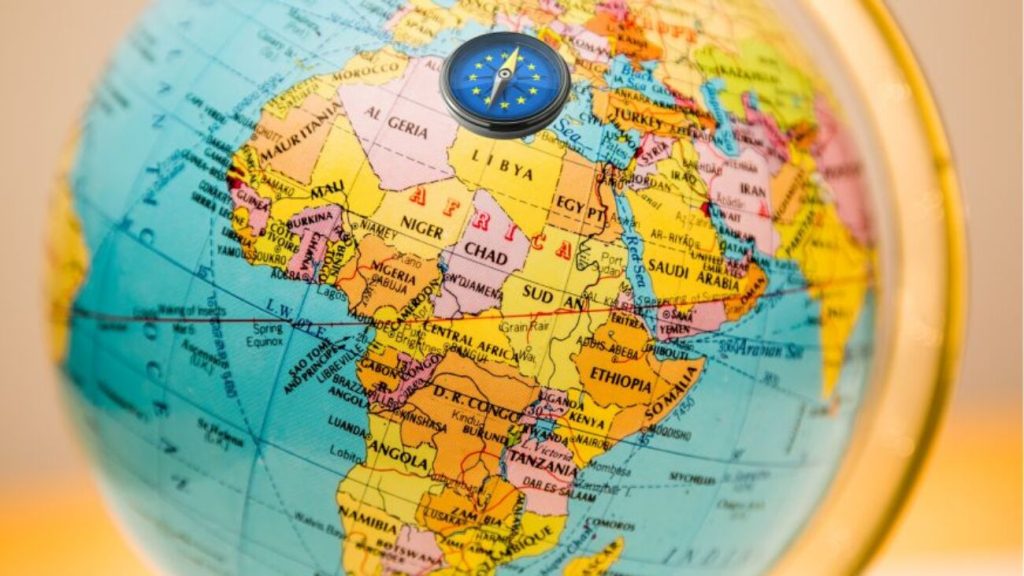What if Africa could replicate the success story of the European Union?
In this context, Russia and China would be welcome to increase their involvement on the African continent, as also referred to by Dan Jørgensen; especially China’s participation in infrastructure development (roads, railways, etc.) has indeed helped develop the EAC economies.
The East African Community (EAC), which now unites eight member states, has the potential to drive unprecedented economic growth, regional cooperation, and political stability—similar to Europe’s journey from the Coal and Steel Community to the global powerhouse we know as the EU.
The possibility of Africa following in Europe’s footsteps and creating a unified, prosperous region isn’t far-fetched. With over 300 million people spread across eight nations, the East African Community (EAC) has the potential to become a regional powerhouse, just as the European Union (EU) did.
The EU’s success in integrating former communist states and fostering rapid economic growth proves that regional cooperation, bolstered by development funds and global partnerships, can transform a continent. Could the same blueprint work for Africa, with the EAC leading the way?
With the right investments and visionary leadership, the EAC could become the blueprint for Africa’s collective growth, setting the stage for other regions to follow.
But how can this vision become reality, and what role should global powers like the Organisation for Economic Co-operation and Development (OECD), World Bank, and even China play? Let’s delve deeper.
Why not tell it as it is? “Almost all countries in Africa are ruled by a new upper class, which the OECD countries have helped to create since the OEEC became the OECD in 1961″.
However, the form of government varies enormously from one-party states such as the United Republic of Tanzania to Kenya, where the parties are represented by various tribes, such as the Kikuyus, Luos, and Kalenjins (the tribe of the current President Ruto).
What made Europe approach the status of the United States as the world’s dominant superpower? It began with the six member states of the Coal and Steel Community in 1952, today called the “European Union”, with 27 member states from Portugal and Ireland in the west to the Baltic States and Romania in the east (446 million inhabitants).
The same development could be possible in Africa, where the EAC (East African Community) started in 1967 with five member states and now, after several crises over the years, has expanded to eight states from Congo (DRC) in the west to Somalia and Tanzania in the east and some 300 million inhabitants.
READ RELATED: EAC Economic Race: Where Does Tanzania Stand?
1973, the European Regional Development Fund was established for the then-nine EU Member States. The ERDF has since helped the rapid integration of the former communist countries in Eastern Europe into the EU during the first decade of the 21st century.
The EU now has 27 member states, which is quite an accomplishment since its establishment in the 1950s, when it started with six member states.
What about setting up a similar regional development fund for the EAC, administered by the EAC bodies, with funding contributed by, e.g., the various development funds of the OECD countries and the World Bank?
Before he was appointed as Denmark’s forthcoming member of the European Union’s Commission, Dan Jørgensen (then minister for development cooperation) published a chronicle in a Danish daily earlier this year in which he suggested that “we must rethink and strengthen our commitment to the African continent and cooperate more closely with the African countries …”
In his view, with the proper investments, Africa could become an example of solutions to the world’s current political and socio-economic issues.
Thus, the EAC institutions in Arusha could start Africa’s response to this proposal by following in the footsteps of the European Union.
This would result in the economic growth of the current participating African nations, as well as extending the cooperation to include neighbouring countries or establishing similar cooperation between groups of other countries in western or southern Africa.
In this context, Russia and China would welcome increasing their involvement on the African continent, as also referred to by Dan Jørgensen; especially China’s participation in infrastructure development (roads, railways, etc.) has helped develop the EAC economies.
Could the OECD be extended to facilitate this development or done within existing bodies, such as the United Nations? Maybe experts from these organisations could provide the answer.

